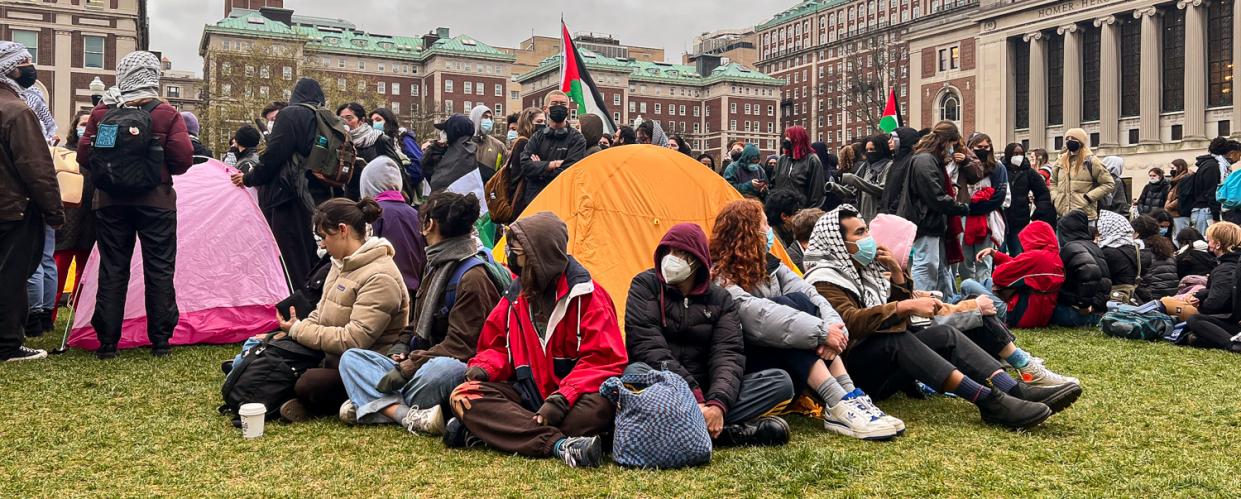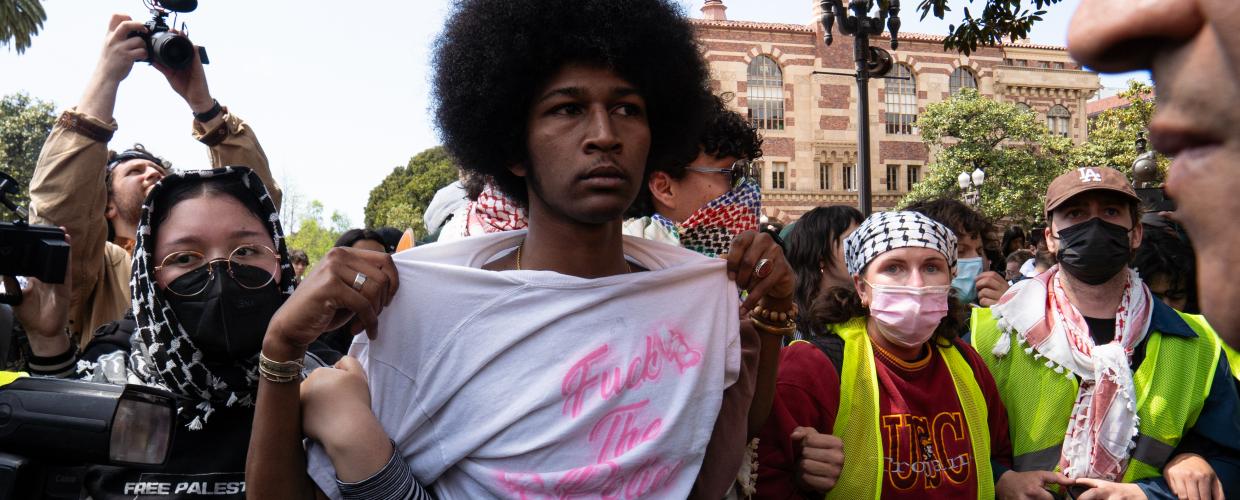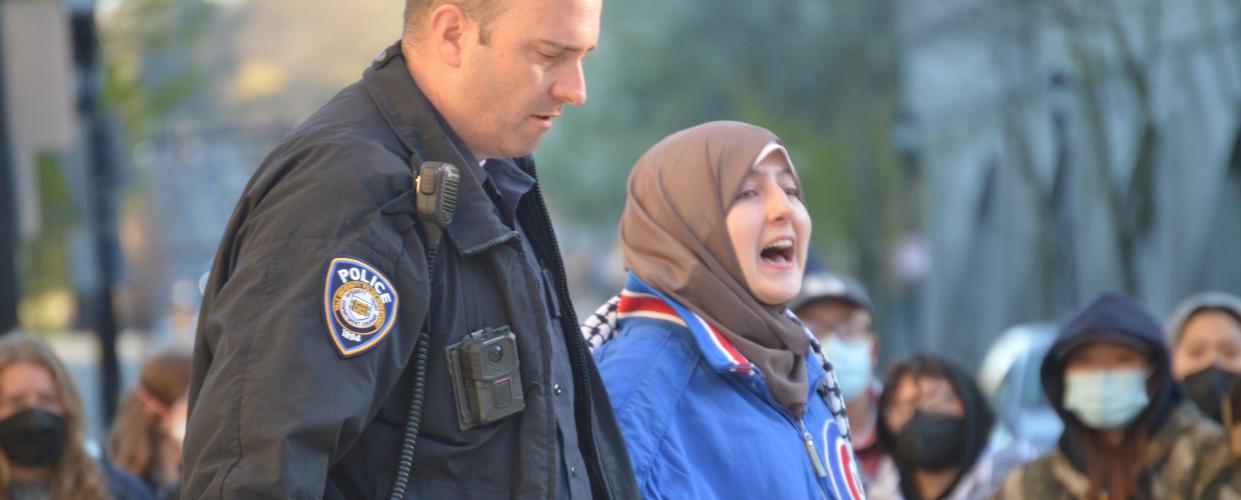
10/05/2024 إنكليزي

10/05/2024 عربي

10/05/2024 إنكليزي

09/05/2024 عربي

08/05/2024 عربي

07/05/2024 إنكليزي

03/05/2024 إنكليزي

30/04/2024 عربي


“I have bad news. You can’t go to sleep yet. We are still under threat of arrest.”
It was 12:36 A.M. on April 22 in Beinecke Plaza at the center of Yale University’s campus in New Haven. Organizers of Yale’s Gaza Solidarity Encampment had just been informed by administrators that, as the third night of tents littering the plaza turned to morning, a mass arrest of students was not a matter of if, but when.
When organizers relayed this to the crowd of nearly 1,000 students, faculty, and community members, there was an immediate chorus of “SHAME” as student marshals began rallying those in attendance to camp out for the night and invite their friends. Over the next two hours, the crowd sat in a ring around the tents to sing, learn new phrases in Hebrew and Arabic, and passed around a smattering of pizza boxes. The last of the pro-Israel counterprotestors had left without incident.
Student tents erected at Beinecke Plaza at the center of Yale University's campus in New Haven on April 22. Photo: Thomas Birmingham
By 2:30 A.M., the camp observed no significant change for a duration of five and a half hours. The concluded that the cops were waiting for the crowd to disperse before making their move in the morning. They were right.
Around 5:45 A.M., the outskirts of the Plaza were militarized. I was doing a lap around the block, when I turned the corner onto College Street, I came face to face with around 15 Yale and New Haven police officers — some of whom were beginning to distribute riot shields — and two large gray police vans. A young female officer offered me a “good morning,” seemingly in acknowledgement of the camera I had pointed her way.
Once word of their arrival spread to the camp, the next 55 minutes were a blur. Some 100 students had remained overnight, they began shaking each other’s tents and sending out SOS messages to every group chat they were in: COME TO THE PLAZA. By 6:20 A.M., the cops had roped off all entrances to the Plaza with caution tape, but most of the students arriving to answer the organizers’ distress signal just ducked under it and entered the Plaza anyway.
By 6:35 A.M., the number of students had doubled. They began to link arms forming circles around the flagpole just outside the encampment. Many of them did not know the person next to them.
Even as a crowd began to form outside the caution tape to watch, a hush had settled over the camp. These students were just standing arm in arm, on the campus of the school that charges them $90,000 in tuition each year, with a strikingly simple demand: Yale University must disclose all its investments in military weapons manufacturing, particularly Israeli weapons manufacturing, and divest from those companies.
Police move on students at Beinecke Plaza at the center of Yale University’s campus in New Haven on April 22. Photo: Thomas Birmingham
At 6:39 A.M., Yale administration decided they had had enough and gave the order that sent at least 20 officers flooding into the camp all at once. Several shook or banged on tents as they passed. All were armed with lethal weapons. Meanwhile, students sang“We Shall Not Be Moved”.
Over the next hour and a half, Yale would have arrested 44 of their students, charging them with Class A misdemeanors for criminal trespass for peacefully protesting Yale’s involvement in a genocide.
Layla Hedroug, a junior studying global affairs, was the third student to be arrested. “Coming from Middle Eastern descent, I have a very close tie to the entire region,” she said. “I’ve been an advocate for Palestinian liberation ever since I was young. And I guess this [arrest] was my right of passage into the world of activism.”
Despite Yale’s efforts, hundreds of students would continue to protest throughout the day, eventually taking over one of the biggest intersections in the city.
One of those students was Hedroug herself, who, less than two hours after her arrest on charges that could leave her with thousands in fines or up to a year in jail, could be seen in the center of the crowd in a brown hijab that cascaded over the keffiyeh on her shoulders, megaphone to her lips, continuing her right of passage to the sound of raucous solidarity from the crowd.
Layla Hedroug chants at protest at Yale University. Photo: Thomas Birmingham








